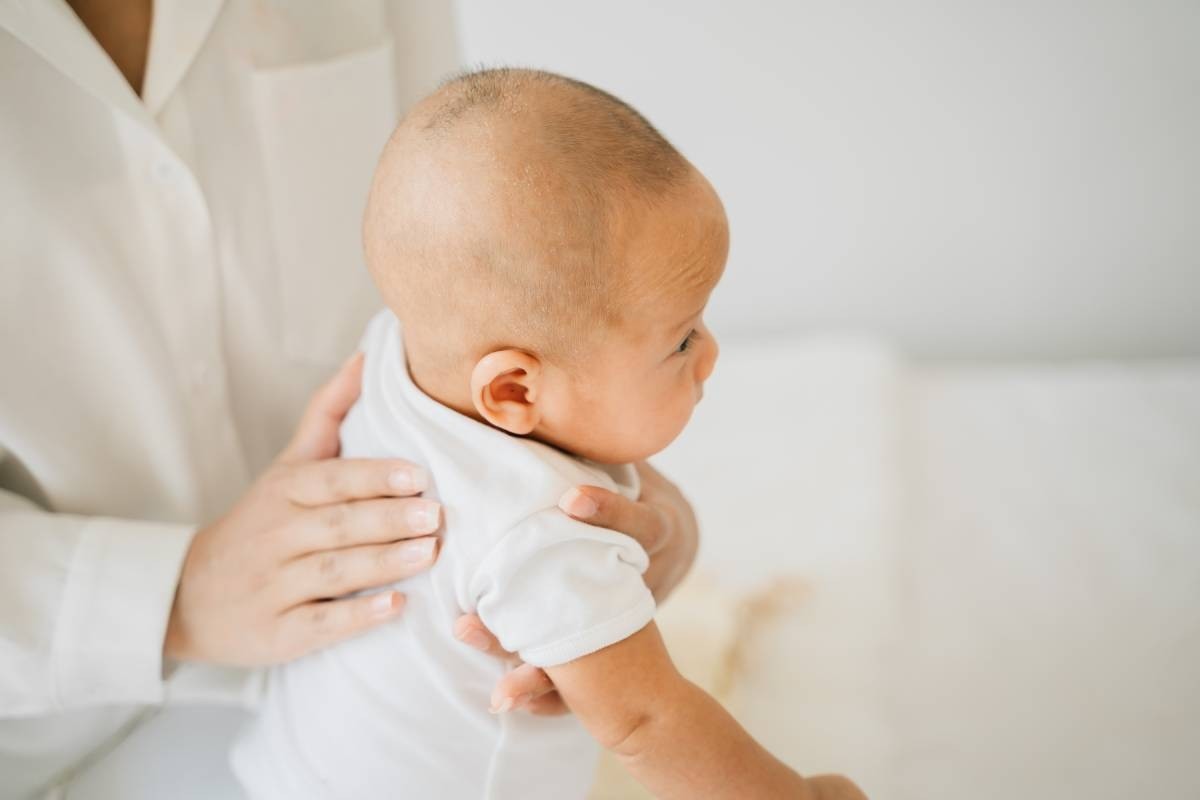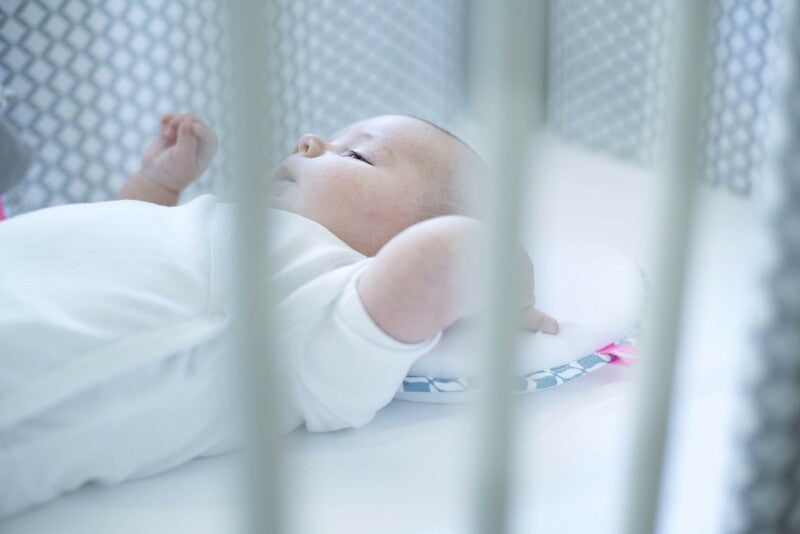Baby hiccups: here are some remedies.
It is very common for newborns to have hiccups, because the digestive and respiratory systems are not yet mature .
Hiccups in newborns are a natural and frequent reaction, they are not worrying and can have various causes. The hiccup is harmless, it can appear as early as the eighth month of pregnancy when the baby is still in the belly and be warned by the mother with small jolts, and then disappear spontaneously.
If hiccups in the newborn create anxiety in the parents, there are still some little tricks to make it pass.
The causes of hiccups in the newborn
Hiccups are caused by an involuntary and rhythmic contraction of the diaphragm, a muscle between the chest and abdomen, followed by the closing of the glottis, which causes the typical "hic" sound. In infants, the diaphragm and phrenic nerve system that stimulates it is still immature.
The causes of hiccups in the newborn are many.
- Gastro-oesophageal reflux, caused by the fact that infants often swallow air by eating too quickly. In this way the cardia, that is the orifice from which the esophagus emerges into the stomach, relaxes and stimulates the diaphragm.
- Crises of tears, in which such a thing manifests itself, swallow the air.
Frequent hiccups in the newborn: what does it mean?
We have said that hiccups are a common reflex in newborns, but if it is very frequent, and continues for hours, it is advisable not to underestimate it and contact the pediatrician. In fact, frequent hiccups can (very rarely) hide a pathological cause. From less severe discomfort, such as a sore throat or something that touches the eardrum triggering the hiccup reflex. But it can also be a symptom of more serious problems related to the digestive system , namely gastroesophageal reflux (GERD) or gastritis. Internal organ problems, such as pericarditis , inflammation of the pericardium, changes in the nerve centers that cause hiccups, a cyst in the throat that makes breathing difficult, kidney problems or even diabetes.
Remedies for hiccups in the newborn
There are some tricks to stop hiccups in babies. If it occurs during breastfeeding, simply resume breastfeeding after a break so that it can start swallowing and breathing naturally again. Another remedy is to try to get the baby to sneeze by touching the nose repeatedly, so as to restart the correct movement of the diaphragm. Furthermore, since even sudden changes in temperature can cause hiccups, it is best to maintain a constant microclimate, especially during breastfeeding.
One of the major causes of hiccups is the ingestion of air while breastfeeding . In these cases, it is therefore possible to try to prevent it by following some tips. For example, take shorter feedings, with several interruptions between one and the other, also trying to make the intermediate burps. A recommended method is to administer a little hot water, boiled and then let it cool slightly with the dropper. You can add a drop of lemon, but always diluted in water: doctors absolutely do not recommend giving pure lemon, which is too acidic and allergenic. While it works for adults, you should never plug your baby's nose to stop sobbing.
Hiccups in the newborn: the useful positions
To prevent or stop hiccups, there are also useful positions in which to place the baby, to prevent it from swallowing too much air. A good solution is to first hold the baby in an upright or oblique position during breastfeeding, at an angle of 30-45 °: this prevents air from stopping in the stomach and the diaphragm from contracting. It is also important to find the right position to ensure that the baby's mouth adheres to the breast, and does not allow air to pass. , perhaps trying to gently massage his back and make him burp. This should rid the baby of excess gas, and make one last louder hiccup and then stop altogether.






Leave a comment